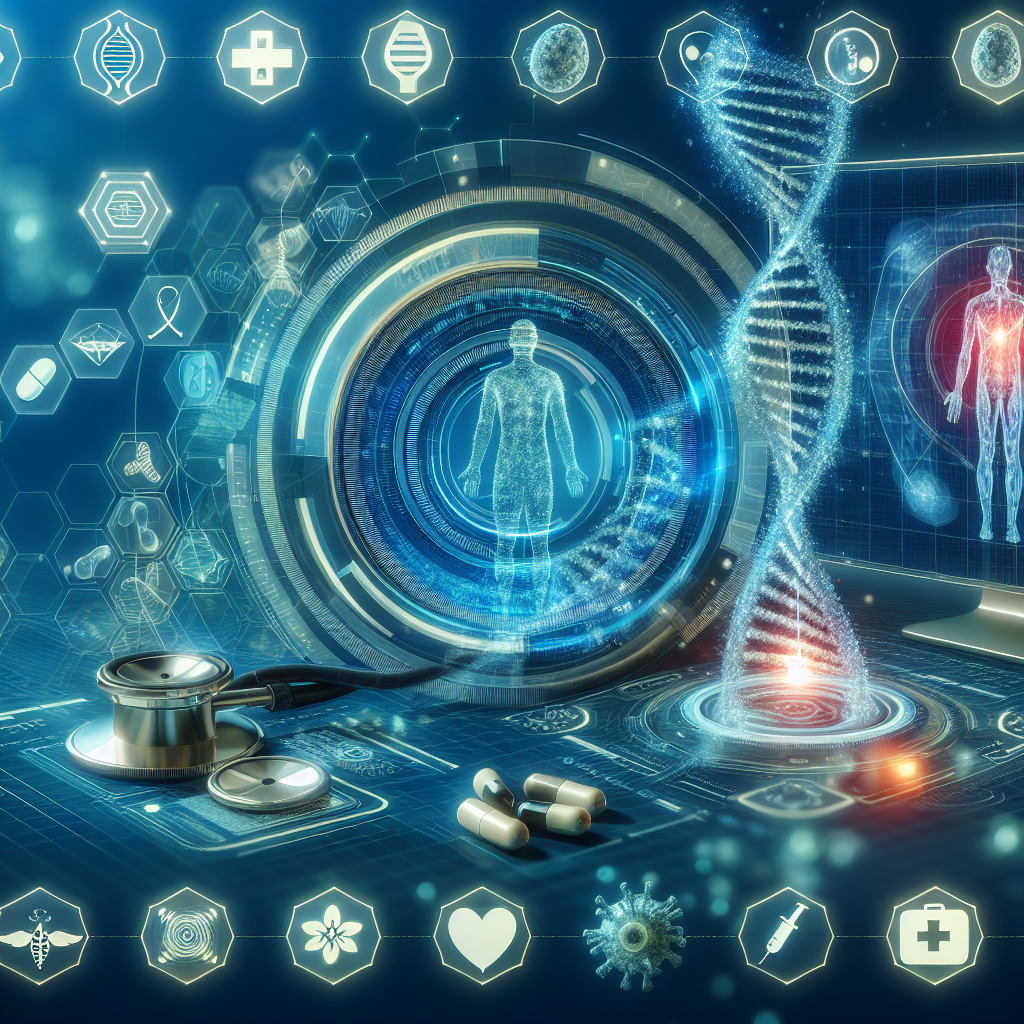Artificial intelligence (AI) has the potential to revolutionize the field of healthcare diagnostics, offering unprecedented accuracy, efficiency, and speed in diagnosing a wide range of medical conditions. As AI technology continues to advance rapidly, the future of AI software in healthcare diagnostics looks promising, with the potential to significantly improve patient outcomes and reduce healthcare costs.
AI software in healthcare diagnostics uses machine learning algorithms to analyze large amounts of data, such as medical images, lab results, and patient records, to assist healthcare providers in making accurate diagnoses. By harnessing the power of AI, healthcare professionals can access real-time insights, personalized treatment recommendations, and predictive analytics to enhance patient care.
One of the key advantages of AI software in healthcare diagnostics is its ability to detect patterns and anomalies in medical data that may be missed by human clinicians. This can lead to earlier detection of diseases, more accurate diagnoses, and improved treatment outcomes. AI algorithms can also assist in identifying rare or complex conditions that may be challenging for human clinicians to diagnose.
AI software can be used in a wide range of healthcare diagnostic applications, including medical imaging analysis, pathology interpretation, genetic testing, and predictive analytics. For example, AI algorithms can analyze medical images, such as X-rays, MRIs, and CT scans, to detect abnormalities and assist radiologists in making accurate diagnoses. In pathology, AI software can analyze tissue samples to identify cancer cells and other abnormalities, helping pathologists to make more precise diagnoses.
In genetic testing, AI algorithms can analyze genetic data to identify disease risk factors, predict treatment outcomes, and personalize treatment plans for patients. AI software can also be used to analyze patient records and clinical data to identify trends, predict disease progression, and optimize treatment protocols.
The future of AI software in healthcare diagnostics is bright, with ongoing advancements in AI technology and increasing adoption by healthcare providers. As AI algorithms continue to improve in accuracy and performance, they have the potential to transform healthcare diagnostics by providing faster, more accurate, and more personalized care to patients.
One of the key trends in the future of AI software in healthcare diagnostics is the integration of AI algorithms into existing healthcare systems and workflows. This will enable healthcare providers to seamlessly access AI-powered diagnostic tools and insights within their daily practice, improving efficiency and clinical decision-making.
Another important trend is the development of AI-powered diagnostic tools that can be used at the point of care, such as in doctors’ offices, clinics, and emergency rooms. These tools can provide real-time diagnostic assistance to healthcare providers, enabling faster diagnoses and treatment decisions for patients.
The future of AI software in healthcare diagnostics also includes the use of AI-powered predictive analytics to identify disease outbreaks, optimize treatment protocols, and improve population health management. By analyzing large amounts of healthcare data, AI algorithms can help healthcare providers to identify trends, predict disease outbreaks, and allocate resources more effectively.
In addition, the future of AI software in healthcare diagnostics will see the development of more personalized and precise diagnostic tools that can tailor treatment plans to individual patients’ needs. By analyzing genetic data, medical history, and other patient information, AI algorithms can provide personalized treatment recommendations that can improve patient outcomes and quality of care.
Overall, the future of AI software in healthcare diagnostics holds great promise for improving patient care, enhancing clinical decision-making, and reducing healthcare costs. By harnessing the power of AI technology, healthcare providers can access advanced diagnostic tools and insights that can transform the way medical conditions are diagnosed and treated.
FAQs:
Q: How accurate are AI algorithms in healthcare diagnostics?
A: AI algorithms in healthcare diagnostics have shown high levels of accuracy in detecting patterns and anomalies in medical data. Studies have shown that AI algorithms can outperform human clinicians in certain diagnostic tasks, leading to more accurate diagnoses and improved treatment outcomes.
Q: How are AI algorithms trained in healthcare diagnostics?
A: AI algorithms in healthcare diagnostics are trained using large amounts of labeled medical data, such as medical images, lab results, and patient records. By analyzing this data, AI algorithms can learn to detect patterns and anomalies that can assist healthcare providers in making accurate diagnoses.
Q: Can AI software in healthcare diagnostics replace human clinicians?
A: AI software in healthcare diagnostics is designed to assist healthcare providers in making accurate diagnoses, rather than replace them. While AI algorithms can analyze large amounts of medical data and detect patterns that may be missed by human clinicians, they are intended to support, not replace, clinical decision-making.
Q: What are the potential benefits of AI software in healthcare diagnostics?
A: AI software in healthcare diagnostics offers a wide range of potential benefits, including faster and more accurate diagnoses, personalized treatment recommendations, predictive analytics, and improved patient outcomes. By harnessing the power of AI technology, healthcare providers can access advanced diagnostic tools and insights that can enhance patient care.
Q: How can healthcare providers adopt AI software in healthcare diagnostics?
A: Healthcare providers can adopt AI software in healthcare diagnostics by partnering with technology companies that specialize in healthcare AI solutions, integrating AI algorithms into existing healthcare systems and workflows, and training healthcare professionals to use AI-powered diagnostic tools effectively. By embracing AI technology, healthcare providers can access advanced diagnostic tools and insights that can transform the field of healthcare diagnostics.

